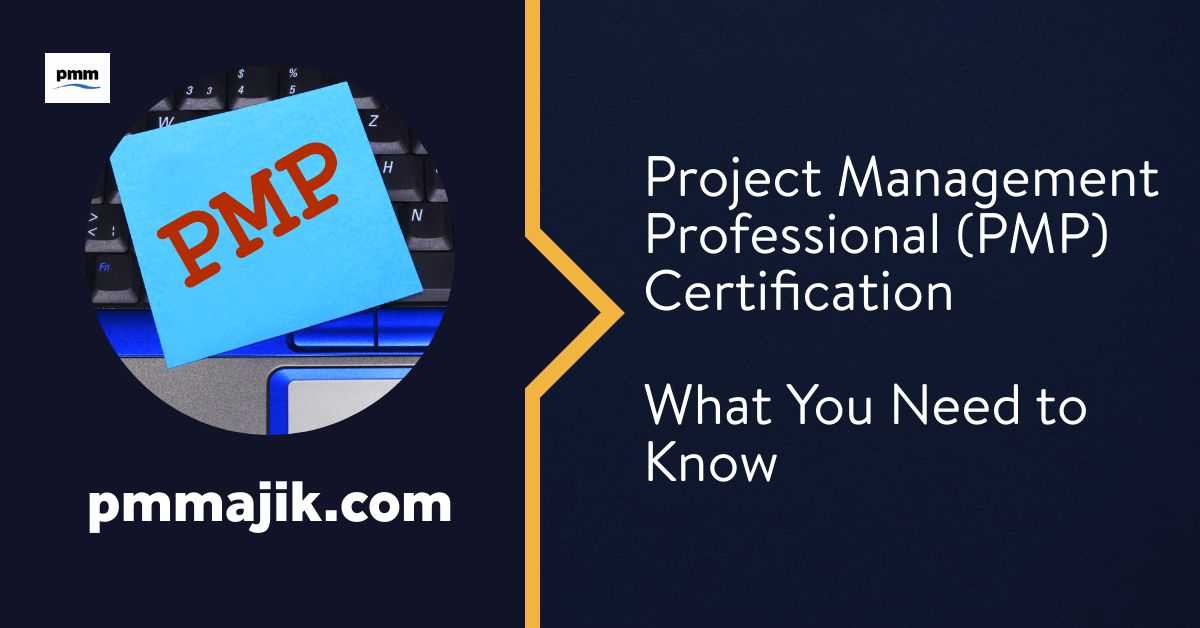Progressing through your project management office (PMO) career takes knowledge, skill, and talent. Having certifications to prove these skills can be useful, so we’re going to look at what you need to know about the Project Management Professional (PMP) certification.
We’re going to look at a range of PMO certifications one by one, and give detailed information so you can make an informed decision. We’ll be covering:
- Which organisation provides the certification
- Details such as the cost and requirements
- What information you’ll study along the way
- The pros and cons of earning your PMP
Where does the PMP certification come from?
The PMP certificate is awarded by the Project Management Institute (PMI). It’s a professional organisation for project managers and has been around since 1969.
It’s a very widely recognised certification and you may find it listed as a requirement in job postings for project managers and PMOs.
What do I need to complete the PMP certificate?
There are strict requirements that you need to fulfil to be accepted on to the course for the PMP. You’ll need to provide evidence of:
- A 4-year degree
- 36 months hands-on experience leading projects
OR
- A high school diploma or associates degree, or local equivalent
- 60 months hands-on experience leading projects
PLUS
- 35 hours of project management education or a CAPM certificate
Once you register this information, it will be vetted before you become eligible to take the exam.
There is a cost to the course, which is US$555 for non-PMI members and US$405 for members. You will likely want to recertify every three years, which is US$150 for non-members and US$60 for members.
To study for the exam, you’ll need to by the Project Management Book of Knowledge (PMBOK) which costs US$99 for non-members and US$49.50 for members or the PMI.
For recertification, you’ll need to complete 60 professional development units (PDUs) through the PMI as well as pay for the recertification.
What will I learn with the PMP certification?
The PMP is focussed on project management, rather than running a PMO. However, it will give you a solid basis in how projects are run and the information the project managers you work with have.
There are three streams of knowledge in the PMP:
- People – learning about the soft skills to be able to effectively manage your team
- Processes – gain an understanding of the best practices to run a project
- Business environment – to know how your project fits in with the wider company
You should walk away with knowledge of how projects are run around the world. The PMP standardises a lot of project processes, making your skills transferrable between companies.
The PMBOK, which is the handbook where you will find everything you need for your exam, has:
- Processes
- Frameworks
- Best practices
- Terminology
That will help you with managing projects and running an office that manages projects.
What are the pros and cons of the PMP certificate?
Whilst you will find many advocates for the PMP certificate, there are also reasons why some workplaces won’t value it so highly. Here’s a breakdown of the pros and cons of the PMP.
Pros of PMP
- It looks good on your CV and can potentially increase your employability
- The PMI says their research shows you will earn a higher salary in the USA
- You can gain a networking advantage and earn some professional kudos
- A deeper understanding of processes and project management jargon
Cons of PMP
- It’s a costly upfront investment to make in one go, or a large expense to ask for your employer to cover
- You need to invest a lot of time into the certification – some people can go into the exam without studying but a re-exam costs so it’s not worth the risk
- The certification focusses primarily on waterfall project management
- Some say that the certification is a proof of what you can do, rather than a way to learn anything new
The take-home
When it comes to the Project Management Professional certification, what you need to know is if it will benefit your particular career. If the industry you work in uses the same frameworks and employers expect it, it may well be a good investment in your future.
There may be more fitting paths to go down, depending where you see yourself in years to come.






